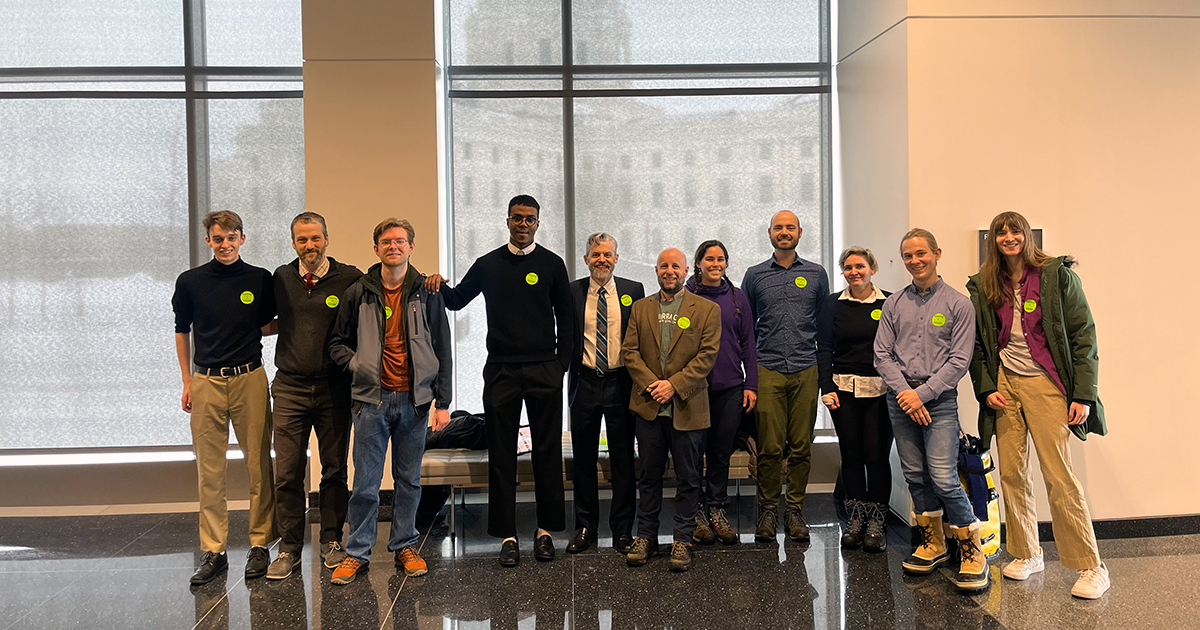How our communities grow and develop has a big impact on the transportation choices we have in our daily lives. We know many more Minnesotans want to ride buses and trains, but they need greater access to public transit where they live. But it’s hard to provide transit service in some places because too few people live within walking distance of potential routes and stations. That’s why housing and urban planning are essential to changing how we get around.
Instead of sprawling development and isolated neighborhoods, we need land use policies that incentivize more housing and businesses in places that are easily accessible and close to one another—especially around transit stops.
During the 2024 legislative session, Move Minnesota and Move Minnesota Action advocated alongside partners for important land use bills that would make our communities more connected and help ensure ongoing transit investments can have the greatest positive impact for years to come.
What passed:
One critical bill that passed in 2024 was the “Comprehensive Plan Clarity” bill. While effectively ending the litigation against the Minneapolis 2040 Plan, this measure allows cities in the Twin Cities metro to plan for increased housing density on already-developed land and prevents the Minnesota Environmental Rights Act (MERA) from being co-opted to block housing. It maintains the ability for environmental defenders to challenge individual projects under MERA.
As we outlined in a coalition letter: “For many decades, far too many cities have used zoning and other land use tools to make their cities exclusive. Decades of local decisions have severely limited the supply of new housing, except for unaffordable housing at the perimeter of the region which requires the most expensive combination of housing and transportation costs…. The same local policies that are harming housing affordability are also exacerbating the climate crisis. They force development to the periphery of the region, which dramatically increases climate pollution by forcing longer commutes by car, requiring more street and sewer infrastructure for each home, and more.”
The passage of the Comprehensive Plan Clarity bill reinstates Minneapolis’s 2040 Plan guidance—which allows at least three units on every lot in the city and increases density along transit corridors—and allows other cities in the metro to plan for transit oriented development without fear of litigation. This will result in more housing in transit-rich and walkable neighborhoods, allowing more people to access transit and strengthening our transit system with more riders.
What made progress:
Move Minnesota Action also participated in a broad coalition led by Neighbors for More Neighbors and Sierra Club North Star Chapter that made a powerful case for zoning reforms that would make our communities more affordable and accessible.
The Multifamily by Right (Kozlowski/Pha) and Missing Middle (Kraft/Mitchell) bills would allow greater housing densities across the state and encourage transit-adjacent development, climate-friendly development, and affordable housing development through density incentives. While these bills got significant media attention and passed two committee hearings with bipartisan support, they faced strong opposition from some suburban legislators and the League of Minnesota Cities and stalled before the end of session. (Read more from MinnPost here.)
The People Over Parking bill, championed by Senator Omar Fateh, also received committee hearings and press attention. The commonsense measure would prohibit parking mandates across the state. When developers aren’t required to install off-street parking, costs for renters, homeowners, and businesses go down. Pew Research Center determined that Minneapolis’ previous loosening of such mandates contributed to the increase of the city’s housing supply.
What comes next:
The 2024 legislative session set the stage for future progress by growing our coalition relationships, building up legislative champions, and increasing public dialogue about the connection between housing affordability, transportation options, climate, and land use.
Moving forward, we’re excited about the energy and growth of the coalition advocating for land use reforms that will make it convenient and comfortable for more people to bike, walk, roll, and take public transit—instead of relying on car ownership.
The post Broad Coalition Builds Momentum that Connects Housing, Transit, Climate, and Land Use appeared first on Move Minnesota.
